Photos: YouTube Screenshots
Globalization and Western democracy, particularly the influence of the United States, have played crucial roles in fostering the development of a liberal political regime in Jamaica. Despite widespread poverty, globalization and a thriving middle class have been instrumental in shaping liberal democratic practices within the Jamaican government.
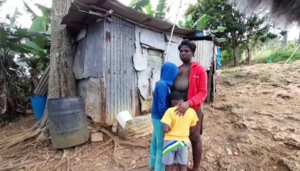
Cultural exchange through travel, migration, and mass media plays a key role in shaping the modern ideologies of Jamaican citizens regarding responsible governance, individual freedoms, and liberties.
As Jamaicans travel and migrate to the global North, they are exposed to freedoms and civil liberties that are not guaranteed in their native land. This exposure prompts citizens to challenge local institutions that have long been entrenched in conservative practices, advocating for more liberal approaches toward social services, economic equality, and human rights. Jamaican television providers heavily rely on American networks for the majority of their broadcast content, exposing Jamaicans to the middle-class American society portrayed in CNN, MTV, sitcoms, and syndicated talk shows. This exposure to American culture contributes to the replication of American values in Jamaican society.
Freedom House ranks Jamaica as free, with fair elections, though as recently as 2022 reports that there are still serious problems, most severe in violations of human rights for LGBTQ+ citizens and high rates of police brutality. Freedom House reports that Jamaica rose from a 75 aggregate freedom (out of 100) in 2017 to 80 as of 2022. This contrasts to much of the rest of the world that seems to be sliding toward increasing autocracy.
Through cooperation with international bodies such as the Organization of American States (OAS), the Organization of Eastern Caribbean States (OECS), and the International Covenant on Civil and Political Rights (ICCPR), as well as supranational entities like Caricom, the United Kingdom’s Privy Council, and the Caribbean Court of Justice (CCJ), the Jamaican government has somewhat abandoned its conservative approach, which previously imposed even more significant restraints on individual human rights. Instead, it has adopted a more modern attitude that acknowledges and increasingly protects human rights as outlined in the UN Universal Declaration of Human Rights (UDHR) and the Jamaican constitution.
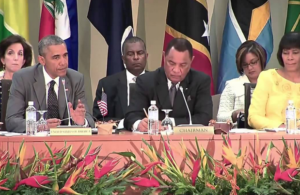
During a visit to Jamaica in April 2015, United States President Barack Obama addressed the then Jamaican Prime Minister, highlighting the United States’ commitment to assisting Jamaica in achieving its long-term economic and political goals. The partnership between Jamaica and the United States has faced opposition at times due to differences in economic and political platforms. However, resolving conflicts such as the wars on drugs, Iraq, and terrorism, relationships with Cuba and Haiti, and bilateral trade agreements has been critical to the expansion of Western democratic practices in Jamaica.
In 2012, the extradition of Christopher “Dudus” Coke, a political strongman and drug lord ruling over the shanty town of Tivoli Gardens in West Kingston, liberated its residents from his brutal reign. Initially hesitant to extradite Coke due to his affiliation with the ruling Jamaica Labor Party, then Prime Minister Bruce Golding yielded to the country’s prior commitments and coordination with the U.S. This move exposed corruption, police brutality, widespread poverty, and the lack of social and economic institutions in Jamaica to the international community. In response, Golding pledged commitment to reform and apologized for his party’s association with Coke’s “Shower Posse” gang. These events led to citizens demanding peaceful elections, an end to extrajudicial killings and abuse of power by police, and social and economic reforms for equality, opportunity, and participation.
Child sexual abuse, a prevalent issue in Jamaica, has historically been underreported or inadequately prosecuted due to cultural and poverty-related barriers. However, the Jamaican government, under the Simpson administration, established public institutions to assist victims with the physical and mental health consequences of child sexual abuse. Efforts have been made to increase reporting and implement preventative measures through cooperation and collaboration with various professionals, including educators and health professionals.

Jamaican nationals overseas also play a critical role in reshaping the government. Remittances from the Diaspora account for approximately 14 percent of the national budget, giving overseas nationals significant influence on national policies affecting the native population. Biannual conferences provide Diaspora members with the opportunity to directly discuss pressing issues and concerns with government officials. Social media platforms enable the Diaspora to highlight immediate socioeconomic needs, which are then presented during these conferences as advocacy for their fellow countrymen. Additionally, overseas nationals assist the government financially through microfinance institutions, promoting gender parity and alleviating poverty among women through entrepreneurial enterprises. By forming alliances with Caribbean and Latin American conglomerates in the Diaspora, overseas nationals strengthen their positions while advocating for social and economic justice in the region.
Regarding homosexuality in Jamaica, as of the date of this essay, the government had not enacted any laws specifically aimed at protecting the rights of individuals who identify as LGBT. However, as the United States moved to legalize same-sex marriages and protect the LGBT community through hate crimes legislation, Jamaica appeared to adopt a sense of tolerance. Former Prime Minister Portia Simpson-Miller openly endorsed the LGBT community, an act that would have been considered political suicide in the recent past. In 2012, Time Magazine named Simpson-Miller one of the world’s 100 most influential persons for her support of the LGBT community in Jamaica.
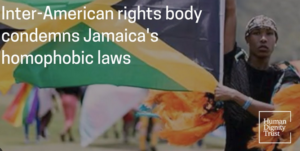
In her address to President Obama and her constituents, then Prime Minister Simpson-Miller reiterated Jamaica’s commitment to strengthening its partnership with its leading trading partner, the United States. The Prime Minister expressed Jamaica’s interests in various arrangements with the U.S., including financing, climate change, trade, energy, and improving relations with Cuba. President Obama, in response, emphasized the importance of Jamaica investing in youth, long-term growth, good governance, and the rule of law, reaffirming the U.S.’s commitment to expanding democratic institutions within the region.
In conclusion, the evolution of Western democracy in Jamaica is primarily a result of international coordination and cooperation, travel and migration, and the impact of mass media and communication through globalization. The cultural exchange of American democratic principles and technological advancements continues to influence the Jamaican population through television broadcasts, social media, tourism, and migration. These socio-economic effects are expected to bring about greater equality and freedoms for all Jamaicans, leading to increased prosperity as civil society expands and citizens realize their ability to hold the government accountable.
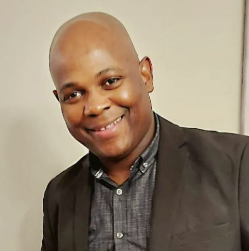
Ivrol Hines is an attorney based in Cumming, Georgia and was named an Ambassador for World Peace by the Universal Peace Foundation in 2006.
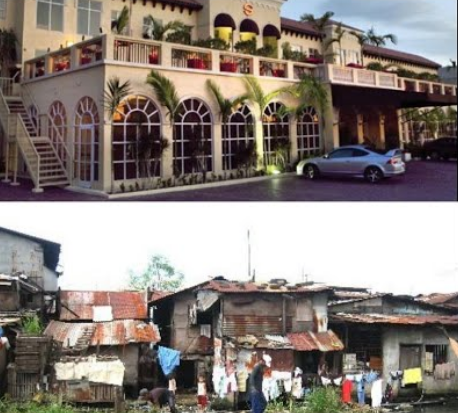
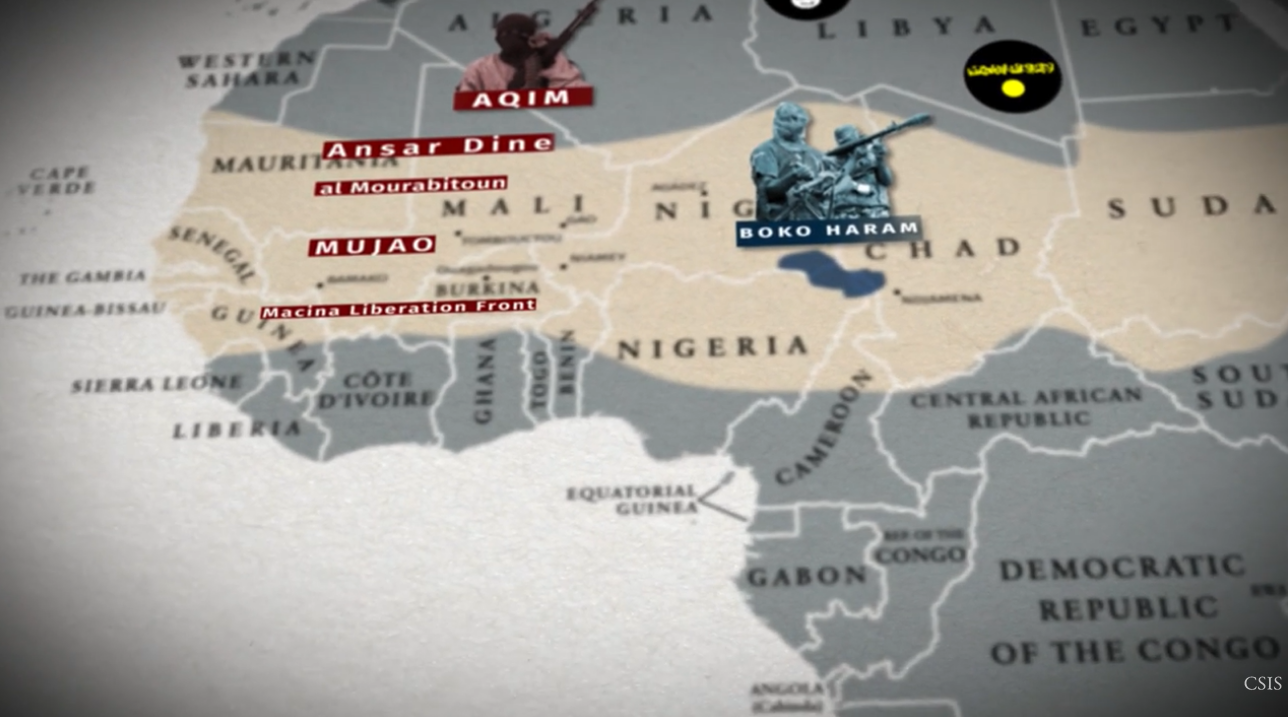

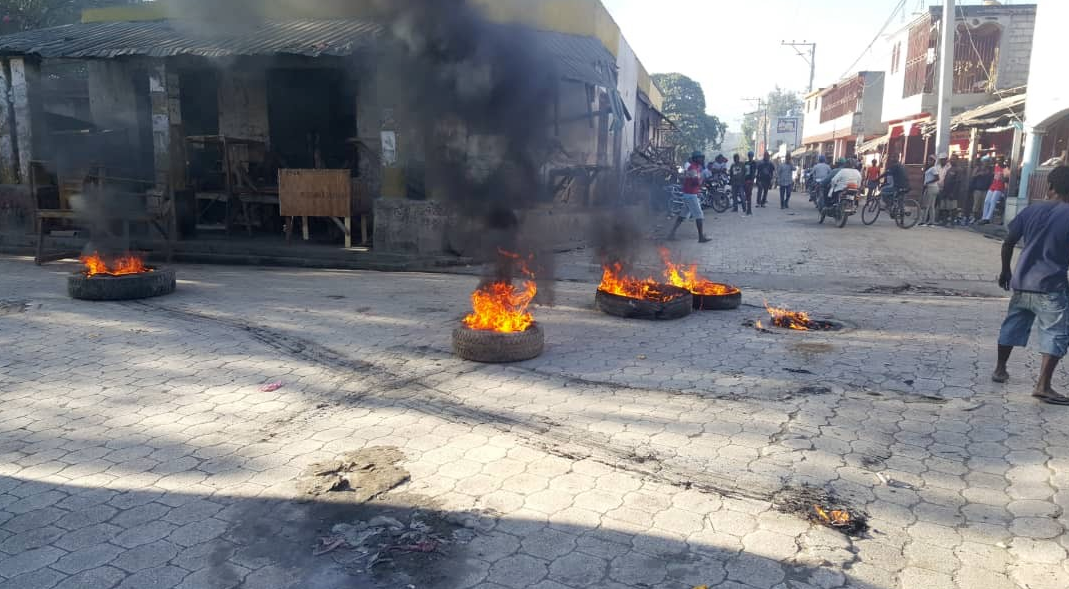



Comments are closed.